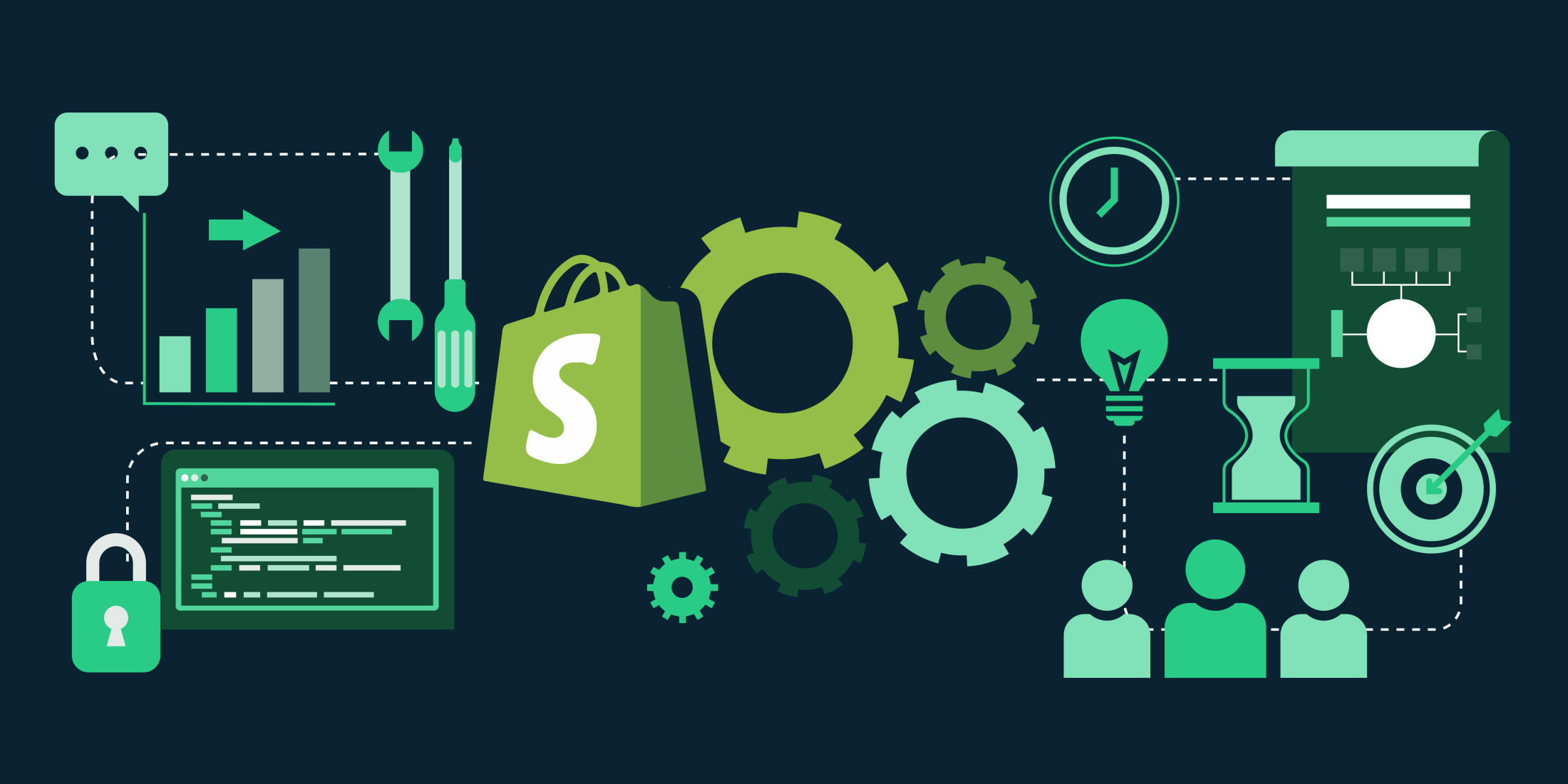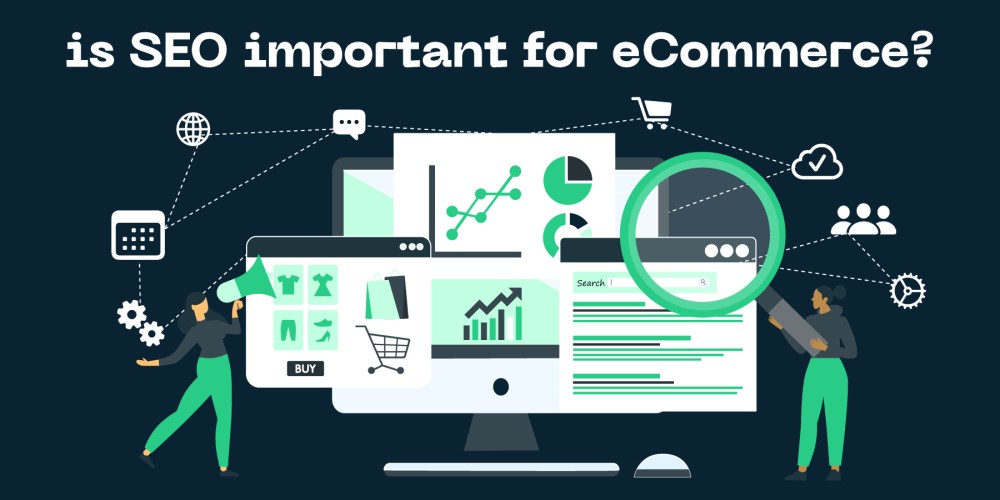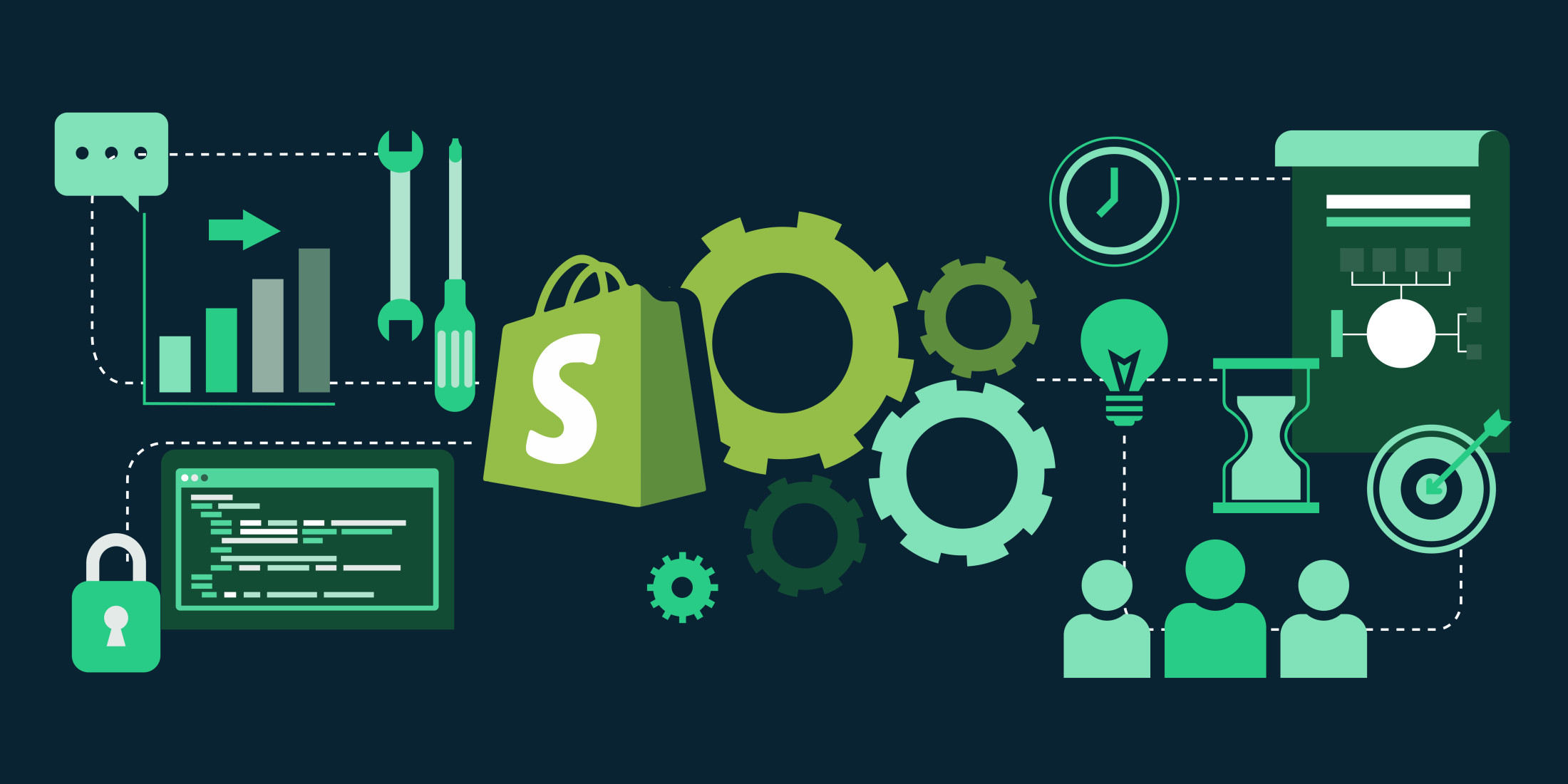How AI Makes Tracking Competitors Easier for Online Stores
Key Takeaways
- AI is revolutionizing how online stores track their competitors, making it easier and faster to gather insights.
- Using AI-driven competitor tracking tools helps online stores understand market trends and adjust strategies accordingly.
- AI tools simplify data collection, allowing stores to monitor key metrics like pricing and competitor strategies in real-time.
- Leveraging AI for eCommerce competitor benchmarks enhances decision-making and boosts time and resource efficiency.
- ConvertMate offers solutions to optimize marketing and competitor tracking for eCommerce brands using AI technology.
Introduction to Competitor Tracking in eCommerce
Understanding the Importance of Competitor Tracking
In the dynamic world of eCommerce, staying ahead of competitors is crucial for maintaining and growing market share. Competitor tracking involves monitoring and analyzing the strategies, products, pricing, and customer engagement tactics of businesses within the same market space. Understanding the importance of competitor tracking lies in its ability to provide actionable insights that can inform strategic decisions. For eCommerce store owners and marketers, these insights are invaluable for optimizing product offerings, pricing strategies, and promotional campaigns, ultimately enhancing conversion rates and customer retention.
Competitor tracking not only allows businesses to benchmark their performance against industry standards but also helps identify emerging trends that can be leveraged for a competitive advantage. By continuously analyzing competitors, eCommerce businesses can uncover gaps in the market and innovate accordingly. This proactive approach ensures that companies can swiftly adapt to changes in consumer preferences, technological advancements, and market conditions. For marketers, this means having the capability to tailor marketing strategies that resonate more effectively with target audiences, thereby driving higher engagement and conversion rates.
In today's digital age, artificial intelligence (AI) plays a pivotal role in enhancing the efficiency and accuracy of competitor tracking. AI-powered tools can automate the collection and analysis of vast amounts of data, providing eCommerce businesses with real-time insights into competitor activities. This enables store owners and marketers to make informed decisions faster, without the need for extensive manual data gathering and analysis. By leveraging AI, eCommerce businesses can focus on crafting strategies that are not only reactive but also predictive, staying one step ahead in the competitive landscape.
Key Metrics to Monitor
In the rapidly evolving landscape of eCommerce, keeping an eye on your competitors is not just a strategic advantage—it is a necessity. Key metrics to monitor play a crucial role in understanding how your competitors are performing and what strategies they are deploying. These metrics can range from pricing strategies, customer reviews, and product availability to website traffic and advertising tactics. By focusing on these key performance indicators, eCommerce store owners can identify opportunities for growth and improvement in their own businesses. The introduction of AI into the mix has revolutionized how these metrics are tracked and analyzed, providing deeper insights and more accurate predictions.
AI-driven tools simplify the process of competitor tracking by automating data collection and analysis. This is particularly beneficial for small to medium-sized eCommerce businesses that may lack the resources for extensive market research. AI can process vast amounts of data much faster than traditional methods, identifying trends and patterns that might otherwise go unnoticed. By leveraging AI, store owners can receive up-to-date information on competitor pricing, promotions, and customer sentiment, enabling them to make swift and informed decisions to enhance their conversion rates. Additionally, AI can help predict future market movements, allowing businesses to stay one step ahead of their competition.
By embracing AI technologies, online store owners can streamline their competitor tracking efforts, ensuring that they are always in tune with the market dynamics. The key to success lies in selecting the right metrics to monitor and utilizing AI to gain actionable insights. As consumer preferences and market trends continue to shift, the ability to quickly adapt and respond to competitor strategies becomes increasingly important. In this context, AI not only makes tracking competitors easier but also empowers businesses to implement effective strategies that boost their competitiveness and drive conversion rates.
Role of AI in Competitor Analysis
How AI Simplifies Data Collection
In the world of ecommerce, staying ahead of competitors is crucial to ensuring that your online store attracts and retains customers. This is where AI plays a pivotal role in competitor analysis by simplifying data collection. Rather than manually scouring through countless websites and social media platforms for information, AI-powered tools can automatically gather and organize vast amounts of data in real-time. These tools are capable of web scraping, which allows them to extract relevant data about competitors' prices, product listings, promotions, and customer reviews with remarkable accuracy and speed. By automating this process, AI significantly reduces the time and effort needed to monitor competitors, enabling store owners and marketers to focus on strategic decision-making.
AI also enhances the quality of collected data through its ability to analyze and interpret information from multiple sources. Advanced algorithms can identify patterns and trends that human analysts might overlook, such as shifts in pricing strategies or emerging market demands. This insight can be instrumental for ecommerce businesses looking to adjust their strategies in response to competitor movements. Moreover, AI tools often come with built-in analytics features that can provide you with actionable insights, like predicting future trends based on historical data. This capability allows businesses to not only react to competitor actions but also to anticipate them, giving them a strategic advantage in the marketplace.
Furthermore, AI streamlines data collection by providing customizable alerts and reports tailored to the needs of your business. This means you can receive notifications about specific competitor activities, such as changes in pricing or the launch of new products, without having to sift through irrelevant data. The capability to customize these alerts ensures that store owners and marketers receive the most pertinent information, thereby improving their ability to quickly respond to competitive threats. Ultimately, by leveraging AI for data collection in competitor analysis, ecommerce businesses can gain a comprehensive understanding of the competitive landscape, allowing them to make informed decisions that can help increase their conversion rates and overall market presence.
Predictive Analytics for Market Trends
In the fast-paced world of ecommerce, staying ahead of competitors is crucial for success. Predictive analytics, powered by artificial intelligence, is revolutionizing the way online stores track market trends and monitor competitors. By analyzing vast datasets, AI can identify patterns that might be invisible to human analysts. This allows ecommerce store owners and marketers to make informed decisions about pricing, product offerings, and marketing strategies. AI-driven competitor analysis can provide insights into competitor pricing strategies, promotional tactics, and customer sentiment, enabling businesses to adapt quickly and effectively to market changes.
The role of AI in competitor analysis extends beyond just data collection. It offers predictive capabilities that can forecast future market trends based on historical data. This means that online stores can anticipate shifts in consumer behavior and adjust their strategies accordingly. For example, if AI analytics indicate a competitor is likely to lower prices on a popular product, a store can proactively adjust their pricing or enhance their value proposition to maintain competitive advantage. This level of foresight can significantly enhance a store's ability to retain customers and attract new ones, ultimately boosting conversion rates.
Moreover, AI tools can automate the process of tracking competitor activity, saving valuable time and resources. By sifting through online data such as reviews, social media mentions, and sales figures, AI can provide a comprehensive overview of a competitor's market position. This automation not only increases efficiency but also allows marketers to focus on strategic planning and execution rather than spending countless hours manually gathering and analyzing data. As ecommerce continues to grow, leveraging AI for predictive analytics in competitor analysis becomes an indispensable strategy for store owners and marketers aiming to stay competitive in the digital marketplace.
Practical Applications of AI in Tracking
Real-time Price Monitoring
Real-time price monitoring has become an essential tool for ecommerce store owners looking to maintain a competitive edge in the fast-paced online marketplace. By leveraging AI technologies, businesses can instantly track competitors' pricing strategies and adjust their own in response. This provides a significant advantage, as even small changes in price can greatly influence consumer purchasing decisions. AI-driven systems can analyze vast amounts of data across various platforms, delivering insights that were previously difficult to obtain manually. As a result, these intelligent tools not only save time but also enhance decision-making processes, leading to more strategic pricing models tailored to current market dynamics.
The practical applications of AI in real-time price monitoring go beyond simple price checks. AI algorithms can identify patterns and predict competitor behavior, enabling ecommerce marketers to anticipate changes and prepare accordingly. This predictive capability is particularly beneficial during sales events or seasons where competition intensifies. Moreover, AI-powered tools can help businesses understand customer sentiment and demand fluctuations, allowing for more precise inventory management and promotional tactics. As ecommerce continues to evolve, staying ahead of competitors through real-time insights becomes increasingly crucial.
For ecommerce store owners and marketers focused on increasing conversion rates, integrating AI into price monitoring systems can lead to significant improvements. By ensuring that prices remain competitive and relevant, businesses can attract more customers and reduce cart abandonment rates. Furthermore, AI-based monitoring can help in identifying price elasticity and consumer preferences, thus enabling more flexible pricing strategies. In a digital landscape where consumers can easily compare prices, having the ability to rapidly adapt to changes in competitor pricing is indispensable. Ultimately, real-time price monitoring powered by AI provides a comprehensive approach to maintaining competitiveness and driving sales growth.
Understanding Competitor Strategies
Understanding competitor strategies is crucial for ecommerce store owners and marketers aiming to increase conversion rates. By comprehensively analyzing competitors, businesses can uncover essential insights into pricing, product offerings, and promotional tactics. Traditionally, tracking competitors required manual data collection and analysis, consuming valuable time and resources. However, the advent of artificial intelligence (AI) has revolutionized this process, enabling online stores to efficiently monitor competitors and adapt their strategies in real-time. AI-powered tools can sift through vast amounts of data, identify patterns, and provide actionable insights, empowering businesses to stay ahead of the competition.
One of the practical applications of AI in tracking competitor strategies is in the realm of dynamic pricing. AI algorithms can continuously monitor competitors’ pricing strategies and adjust the store’s prices accordingly to remain competitive. Such real-time pricing adjustments ensure that ecommerce stores do not lose potential customers to competitors due to pricing disadvantages. Moreover, AI can analyze historical sales data to predict future trends, allowing businesses to pre-emptively modify their pricing and inventory strategies. This proactive approach not only helps in capturing more customers but also in optimizing profit margins.
Another area where AI proves invaluable is in tracking competitors’ promotional tactics and customer engagement strategies. By analyzing social media interactions, customer reviews, and promotional campaigns, AI tools can provide insights into what strategies are resonating with consumers. This allows ecommerce store owners and marketers to craft more effective marketing campaigns, tailor their customer engagement strategies, and ultimately enhance the customer experience. The ability to track and analyze competitor strategies through AI-driven insights equips businesses with the knowledge needed to differentiate themselves in a crowded market, driving higher conversion rates and fostering sustained growth.
Benefits of Using AI for Competitor Tracking
Enhanced Decision Making
In today’s fast-paced ecommerce landscape, enhanced decision making is crucial for online stores aiming to keep a competitive edge. Artificial Intelligence (AI) plays a pivotal role in refining this decision-making process, particularly when it comes to tracking competitors. By leveraging AI, store owners and marketers can gain deeper insights into their competitors’ strategies, pricing models, and product offerings, which allows them to make well-informed decisions faster and more effectively. With AI-powered tools, ecommerce businesses can automate data collection and analysis, significantly reducing the time and effort required to stay updated on market trends and competitor activities. This allows business owners to focus more on strategic initiatives that drive growth and improve conversion rates.
One of the primary benefits of using AI for competitor tracking is its ability to process vast amounts of data rapidly and with precision. AI algorithms can sift through various data points, such as pricing changes, product launches, customer reviews, and promotional strategies, to provide a comprehensive picture of the competitive landscape. This level of detail and speed in analysis is something that traditional methods of competitor tracking cannot match. AI not only helps in identifying patterns and trends but also in predicting future market movements, which can be invaluable for ecommerce store owners looking to anticipate competitor actions and adjust their strategies proactively.
Moreover, enhanced decision making through AI-driven competitor tracking allows for personalization and targeted marketing efforts. By understanding competitors’ offerings and customer preferences, ecommerce businesses can tailor their products and marketing strategies to better meet the needs of their target audience. This personalization can lead to improved customer satisfaction and increased conversion rates. In essence, AI equips ecommerce store owners with the tools they need to not only keep up with the competition but to potentially outpace them by making strategic, data-driven decisions that align with market demands and customer expectations.
Time and Resource Efficiency
Time and resource efficiency are critical factors for any ecommerce store owner or marketer aiming to maintain a competitive edge. By utilizing AI for competitor tracking, online stores can significantly streamline these processes. Unlike traditional methods that often require exhaustive manual labor to gather and analyze data, AI-driven tools can automate these tasks, providing faster and more accurate insights. This automation allows you to allocate your resources more effectively, focusing on strategic decision-making rather than getting bogged down by time-consuming data gathering. As a result, AI not only saves time but also optimizes the allocation of human resources towards more impactful activities, ultimately aiding in increasing your conversion rate.
Furthermore, the intelligent algorithms inherent in AI tools can sift through vast amounts of data much more efficiently than a human could. This capability not only accelerates the data collection process but also enhances the quality of insights derived from the data. For an ecommerce store, this means being able to quickly identify trends, understand competitive pricing strategies, and adapt your own pricing and marketing tactics accordingly. Efficient data analysis translates into the ability to make more informed decisions at a faster pace, keeping you ahead in a rapidly changing market.
In addition, AI’s predictive capabilities play a significant role in enhancing time and resource efficiency. By analyzing historical data and current market trends, AI can forecast potential shifts in competitor strategies, allowing you to preemptively adjust your tactics. This proactive approach ensures that your business remains agile and responsive, further conserving resources that might otherwise be expended on reactive measures. As online competition intensifies, leveraging AI for competitor tracking becomes not just a benefit but a necessity, ensuring that your store remains competitive and your resources are utilized to their fullest potential.
Implementing AI Solutions for eCommerce
Choosing the Right Tools
When implementing AI solutions for eCommerce, choosing the right tools is paramount for effectively tracking competitors and gaining a strategic edge in the marketplace. While many options are available, not all AI tools are created equal, and selecting the best one can significantly impact your store’s performance. It is essential to consider tools that offer real-time data analysis and insights, as they can help you make informed decisions faster. Robust AI solutions should also integrate seamlessly with your existing platforms and workflows, ensuring smooth operations without the hassle of extensive reconfigurations.
Another critical factor in selecting AI tools is their ability to provide predictive analytics. This feature allows eCommerce store owners and marketers to anticipate market trends and competitor moves, thus staying one step ahead. Tools that can deliver such foresights can lead to better pricing strategies, improved product offerings, and ultimately, higher conversion rates. It is also beneficial if the AI tool comes with customization options to tailor its functionalities to meet your unique business needs, which can enhance its value significantly.
Moreover, ease of use should not be overlooked. Even the most sophisticated AI tools should have an intuitive interface that allows users to quickly navigate and leverage their full potential. This ensures that your team can focus on strategic tasks rather than being bogged down by technical complexities. In sum, investing in the right AI tools is not just about keeping up with competitors; it is about outpacing them by leveraging superior data-driven insights that can transform your eCommerce business.
Integrating AI with Existing Platforms
The rapid integration of AI with existing eCommerce platforms marks a significant evolution in how online stores operate, particularly in tracking and analyzing competitor activities. For ecommerce store owners and marketers, the ability to efficiently gather and process large quantities of competitive data is crucial. AI solutions offer advanced analytics capabilities that enable stores to monitor competitors’ pricing, product offerings, and promotional strategies in real-time. This real-time analysis provides businesses with a strategic advantage—empowering them to swiftly adjust their marketing and sales tactics to better align with market dynamics.
Implementing AI solutions in eCommerce is not just about having cutting-edge technology; it’s about enhancing decision-making processes. AI algorithms can sift through vast datasets to identify patterns and trends that would be impossible for humans to discern quickly. For instance, predictive analytics facilitated by AI can forecast competitors’ next moves, allowing online stores to proactively strategize rather than react. The integration of AI into eCommerce platforms, therefore, transforms raw data into actionable insights, which is invaluable for driving growth and increasing conversion rates.
Furthermore, AI integration streamlines operations by automating mundane tasks, freeing up valuable human resources to focus on more complex strategic activities. By reducing the time spent on manual data analysis, marketers and store owners can devote more energy to refining their unique value propositions and enhancing customer experiences. In terms of tracking competitors, AI not only simplifies the process but also provides a more comprehensive and nuanced understanding of the competitive landscape. This deeper insight enables online stores to not only keep pace with competitors but to anticipate and outmaneuver them, ultimately leading to sustained business success.
FAQS
How does AI assist in tracking competitors for online stores?
AI helps online stores track competitors by using advanced algorithms to collect and analyze data on competitor pricing, product offerings, and customer reviews. This data provides insights into market trends and competitor strategies, allowing businesses to make informed decisions.
What specific AI tools can online businesses use to track competitors?
Online businesses can use AI-driven analytics platforms, sentiment analysis tools, and price monitoring software to track competitors. These tools can automate data collection and provide real-time insights into competitor activities.
How does ConvertMate enhance competitor tracking for eCommerce stores?
ConvertMate integrates with existing analytics tools and platforms to provide comprehensive competitor tracking capabilities. By leveraging AI, ConvertMate can help store owners identify competitive pricing and promotional strategies, leading to increased conversion rates.
Can AI predict future trends in competitor strategies?
Yes, AI can analyze historical data and current market trends to predict future competitor strategies. Machine learning algorithms can identify patterns and forecast changes in pricing, product launches, and marketing campaigns.
Is AI cost-effective for small and medium-sized eCommerce businesses?
AI solutions are becoming increasingly affordable for small and medium-sized businesses. Many platforms offer scalable services that can be tailored to fit different budgets, making it feasible for businesses of all sizes to leverage AI for competitor tracking.
How reliable are AI-generated insights on competitors?
AI-generated insights are highly reliable as they are based on comprehensive data analysis and algorithms designed to minimize errors. However, it's crucial to complement AI insights with human expertise to ensure strategic decisions are well-rounded.
What role does AI play in improving competitor analysis over traditional methods?
AI automates and accelerates the data collection and analysis process, providing deeper insights and faster results compared to traditional methods. It allows for real-time monitoring and can handle large datasets, offering a significant advantage in staying competitive.




